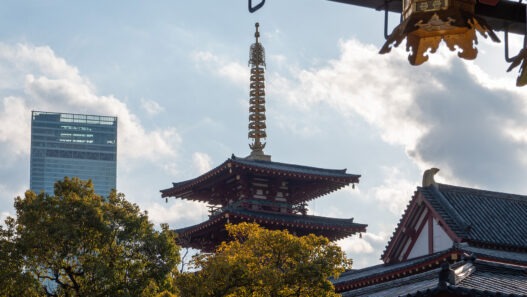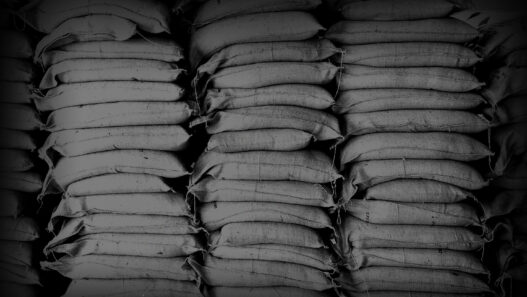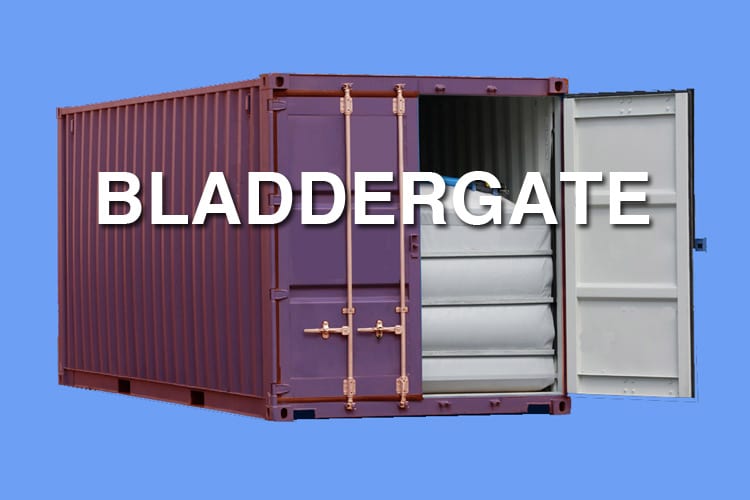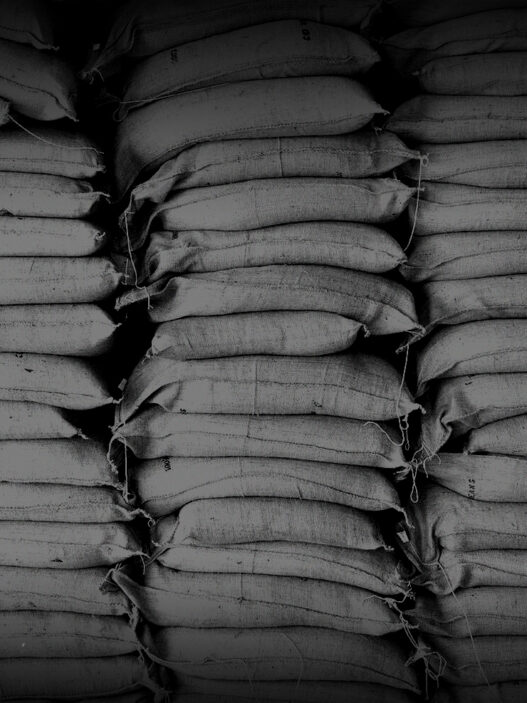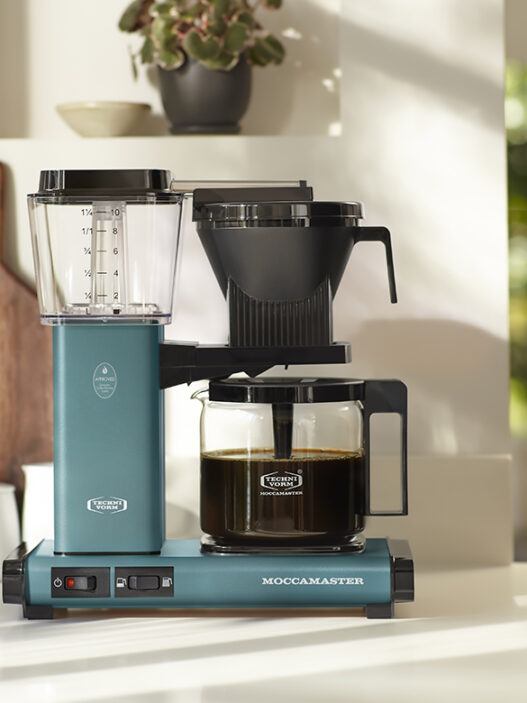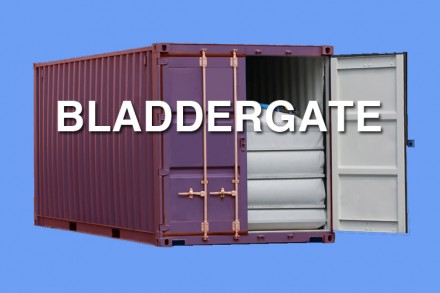
Tuesday Update [12/6 1:55 PM PST] Two worthwhile developments to share with you today:
We’ve long been following the website Poor Farmer, a polemical Seattle-based coffee blog that covers Ethiopian coffee news with a watchful, at times controversial eye. Anyone reading this should direct their browser post-haste to this post on Poor Farmer, from which this is an excerpt:
The Government of Ethiopia has recently issued yet another directive that is filled with ambiguity and disregard to proper implementation of trade policies that affect everyone in the logistics supply chain…The directive is difficult to comprehend in more ways than one. First, the letter uses “bulk container” and “loose container” interchangeably and without distinction…
The directive indicates the possibility of granting a special permit when approved by the Ministry of Trade, but does not disclose the requirements and procedures for requesting or granting exceptions to the coffees that can be exempted from the rule. It seems that exporters or buyers will need to visit someone at the Ministry of Trade..judging from the reactions of international trade partners to the directive, the policy change was not discussed with or publicized enough to reach most of the small and medium-sized coffee roasters in North America and Europe.
Mezlekia offers a rough translation of the government directive from Amharic to English, as signed by Yakob Yala, State Minister of Trade. Mr. Mezlekia is a polarizing figure in the specialty coffee blogosphere, but this is brave, bold, must-read stuff…
You should also have a look here on the Counter Culture flickr page. Tim Hill has just returned home from Ethiopia, and his photos and commentary offer a fascinating view from origin over the past few weeks.
On one hand it seems like another hoop the Ethiopian government is making people go through, and people don’t understand why. Unlike the ECX, I personally don’t understand the “why” of this move. Is it the whole issue with the tainted burlap bags that delayed exports a few years ago? Is it cost savings? Lack of burlap in the country? Will this help coffee move faster out of Djibouti (from which Ethiopian coffee ships)?
Though I do not know “why,” I am going to assume there is a reason, just like there is a reason people in the US and other places are not happy about it. The thing I am taking away from this – and the thing I respect – is that Ethiopia once again is not afraid of change.
Updates and new links as this feature develops, right here on Sprudge.com.
Monday Update [12/5 12:49 PM PST]As details continue to pour in to our Bladdergate News Desk, an anonymous tipster writes:
Today the board members of the Ethiopian Coffee Exporters Association (ECEA) had a meeting with the Minister of Trade.
The government’s stance regarding bulk shipment has not changed; if buyers want to purchase Ethiopian coffee they must be willing to accept bulk shipment.
Personally, I think once the year-over-year stats continue showing lower export volumes and value even though this is a high crop year, minds may begin to change.
Stay tuned for all the latest throughout the week.
New Bladdergate Update [12/3 2:06 PM PST] Continuing his invaluable tipstering, Noah Namowicz of Cafe Imports offers this update to our ongoing Bladdergate coverage. Take it away, Noah:
Hey guys,
So it looks as if this is still up in the air (see below), apparently far from resolved as some might have indicated previously. We assume the law WILL change, as it obviously causes a lot of issues, but you never know.
Ethiopian coffee exporters association (ECEA) submitted a letter to Ministry of Trade (MOT) stating 100% bulk shipment will hurt our industry and that the buyers should have the option to purchase in jute or bulk. Board members of the ECEA met with EXC authorities to discuss many issues regarding trade which included imposing 100% bulk shipments, which could highly affect the Ethiopian government’s expectation of exporting 270,000 MT for the upcoming fiscal year. Head of the authority will talk to Ato. Yakob Yala, Minister of Data at MOT, to convey all our concerns and I am sure the board will have the opportunity to address all our issues to the MOT in the near future.
Since imposing bulk shipment regulations, coffee export is down, transactions at EXC are down and earlier this week reject prices at EXC were higher than the arriving green coffee prices. In my personal opinion the bulk shipment issues will be revised soon, as coffee export plays a crucial role in the government’s 5 year growth transformation plan (GTP).
Thanks, Noah. Stay tuned to Sprudge as this story continues to whirligig.
Bladdergate Update [12/2 8:00AM CST] An anonymous tipster approached us with the following insight:
According to the Ministry of Trade in Addis, the reasons [for proposing new size restrictions on coffee exports] are:
o Maintaining quality of shipment
o Controlling theft upon transport
o Reduce weight loss
o Minimizing extra cost for bags purchase for exporters
o Minimizing extra cost of bags disposal for buyer/roaster
o Benefiting exporters from premium paid for bulk shipment
o Alleviating problem of jute bags shortageThere was a “come to Jesus meeting” in Addis with the MOT a couple of days ago with representatives of most of the major exporters and traders of Ethiopian coffee [sic] where they presented their complaints about this new law as well as some of the other newer [sic] regulations set to come into play this season. A formal letter was submitted. More to follow…
More information from us as it develops.
Bladdergate Update [1:31PM PST]: Sprudge commenter Trish has written in, “According to Samuel of Keffa, who went to the Ethiopian Embassy in DC today to ask about it, Specialty lots are exempt from these.”
The general consensus amongst coffee buyers is that this law (or directive, or whatever the loose translation is) is either “fantastically hush hush or dead in the water”.
An anonymous tipster wrote in to Sprudge with the following insight:
Very few buyers of Ethiopian coffee, even the major players, will be able to deal with containerloads, and unless importers are expected to rebag at their end (which I doubt they’ll be happy to do) this is just setting the Ethiopia coffee trade up to fail. The reasons I was given for why this idea/suggestion/directive/law is there in the first place aren’t unreasonable, but I think there is just no way this will stay as a law. Not only the tiny specialty side but the commercial side would have been seriously up in arms about this for a long time already if it is a real deal, and the fact that no one has heard of it until now just tells me it’s all a bit unlikely to happen.
—-
Breaking news from Ethiopia, via Noah Namowicz from Cafe Imports: a new law by the Ethiopian government that prohibits exporting 60kg bags of coffee from the country. We’re told that all coffee shipped out of Ethiopia must now be done in bulk and contained in a massive homogenized bladder.
40,000 lbs in one big bladder or nothing out of Ethiopia is the word…COOPs are not exempt, this is wild. Lot separation in Ethiopia may now be illegal if this is true.
This law, if enforced, may effectively mean the end of micro lot separation in Ethiopia. We’ve checked our calendars to make sure this isn’t an April Fools joke, and you might want to as well. This is nuts.
Developing…












